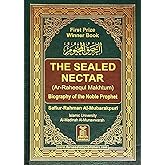
Enjoy fast, free delivery, exclusive deals, and award-winning movies & TV shows with Prime
Try Prime
and start saving today with fast, free delivery
Amazon Prime includes:
Fast, FREE Delivery is available to Prime members. To join, select "Try Amazon Prime and start saving today with Fast, FREE Delivery" below the Add to Cart button.
Amazon Prime members enjoy:- Cardmembers earn 5% Back at Amazon.com with a Prime Credit Card.
- Unlimited Free Two-Day Delivery
- Streaming of thousands of movies and TV shows with limited ads on Prime Video.
- A Kindle book to borrow for free each month - with no due dates
- Listen to over 2 million songs and hundreds of playlists
- Unlimited photo storage with anywhere access
Important: Your credit card will NOT be charged when you start your free trial or if you cancel during the trial period. If you're happy with Amazon Prime, do nothing. At the end of the free trial, your membership will automatically upgrade to a monthly membership.

Download the free Kindle app and start reading Kindle books instantly on your smartphone, tablet, or computer - no Kindle device required.
Read instantly on your browser with Kindle for Web.
Using your mobile phone camera - scan the code below and download the Kindle app.

Al-Adab al-Mufrad with Full Commentary: A Perfect Code of Manners and Morality Paperback – May 29, 2018
Purchase options and add-ons
Al-Adab al-Mufrad, an anthology of 1329 hadiths, is a treasured work in Muslim history by one of its most respected scholars, Imam Bukhari.
In preparing this selection of hadiths Imam Bukhari aimed to set out a model to follow for successful relations within the Muslim community as well as interaction between Muslims and non-Muslims based on the Prophetic example, and that of Muhammad's closest companions. All of the hadiths are directly related to the standards of manners and morality Islam wants to prevail, and Muslims throughout the world have been guided by it since its preparation over a millennium ago.
Famed for the reliability and strength of his work, Imam Bukhari exclusively used hadith that do not go below the grade of "Good", or "Hasan", and since they are focused on manners and moral values, they are upheld by scholars.
What distinguishes the present work is that it includes a contemporary commentary, clearly emphasising the relevance of the Prophet's teachings in our modern and complex societies. This pioneering addition marks it out as perhaps the first English work commenting on and explaining a full anthology of hadiths.
The translator and author of the commentaries, Adil Salahi, has a long history of research in the Seerah and Hadith, and he wrote extensively on both. This work puts together the best of his writings on the Prophet's teachings in the area of morality and private and social manners.
- Print length1024 pages
- LanguageEnglish
- PublisherThe Islamic Foundation
- Publication dateMay 29, 2018
- Dimensions6.1 x 2.4 x 9.2 inches
- ISBN-100860376095
- ISBN-13978-0860376095
Book recommendations, author interviews, editors' picks, and more. Read it now.
Frequently bought together

Customers who viewed this item also viewed
Editorial Reviews
About the Author
Excerpt. © Reprinted by permission. All rights reserved.
All people agree that to be kind and dutiful to one's parents is the proper attitude. All societies, including those where family ties have become very loose, agree that sons and daughters must always be kind to their parents. Parents sacrifice a great deal to bring up their children. They take pains to provide the happiest life they can for them. Yet, it cannot be denied that not all parents provide their children with the same standards of care and love. Some children are more fortunate than others in this respect. In most cases, however, parents do care for their children and look after them well. In doing so, they have to work hard and sacrifice much of their time, effort, money as well as physical and mental rest.
From time to time we hear about parents who are cruel to their children. Cases are reported of parents who kill their children, or cause them to die. These cases are exceptions that do not invalidate the rule. When we examine any such scenario, we find that the perpetrators are far from normal people. The healthier and more virtuous a society is, the less frequent and more far between such cases of perversion become. The closer a society moves towards Islamic life, the more likely such instances disappear and become largely non-existent.
Because parents sacrifice much to bring up their children, all religions tend to emphasize the virtue of kindness to parents. Islam makes such kindness to parents a personal duty of every son and daughter, allowing no exception whatsoever. A number of Qur'anic verses make dutifulness to parents a universal requirement, second only to believing in God's oneness. God says in the Qur'an: "Say: Come, let me tell you what your Lord has forbidden to you: Do not associate partners with Him; [do not offend against but, rather,] be kind to your parents; do not kill your children because of your poverty. We provide for you and for them; do not commit any shameful deed, whether open or secret; do not take any human being's life, which God has made sacred, except in the course of justice. This He has enjoined upon you so that you may use your reason". (6: 151)
We also have a large number of hadiths that encourage in all manners of emphasis treating parents with a devoted kindness, and which further stress the importance of overlooking their faults. Al-Bukhari opens this book with a section on dutifulness to parents, showing it to be the most important of Islamic moral values. Each section comprises a number of chapters, with a small number of hadiths in each and which is given a significant heading. The first chapter in this section is headed with a Qur'anic verse that says: "We have enjoined man to be kind to his parents". (29: 8)
1. 'Abdullah ibn Mas'ud reports: I asked God's Messenger: "Which action does God love best?" He answered: "Prayer at its proper time". I asked: "What comes next?" He said: "Dutifulness to parents". I asked: "What comes next?" He said: "Next comes jihad for God's cause".
Ibn Mas'ud adds: "He told me of these, but he would have added more, had I asked him to do so". Many people may be surprised at this order of priority. Were we to ask people where they would place jihad, i.e. striving for God's cause, in the list of deeds earning great reward from God, most of them would give it first priority. Jihad requires a person to believe that Islam is the religion of the truth, accept it, hold firmly to it and present it to others. In doing so, a person may have to sacrifice his wealth and his life. Jihad means willingly accepting such risks. Although most people understand jihad to mean fighting the enemies of Islam so that it may achieve supremacy over all other religions, creeds and philosophies, its significance is much wider than its erroneous translation as "holy war". Indeed, there is no such concept as a "holy war" in Islam. War is either legitimate, when it is for a just cause, or else it is unacceptable aggression. Every action that serves the dual purpose of establishing Islam firmly in its own land and delivering its message to others so that they can make their own choice about it is part of jihad.
However, the Prophet places as our first priority a simple act of worship; this also falls within the ambit of one's personal relationship with God. Prayer at its proper time is the action God loves best. It is followed by a deed that concerns family relations. Both come ahead of jihad which has more to do with public life and with the common welfare of the Muslim community. Needless to say, prayer and dutifulness to parents require much less effort and sacrifice than jihad.
This hadith shows that the Prophet had a keen insight into what motivates people to work and to sacrifice. We know that prayer is the most important Islamic duty, but it does not impose a heavy burden on the individual. It is an easy and pleasant duty which makes man constantly aware of what God requires of him and which keeps him on guard against falling into sin. It is only logical that the fulfilment of the top and most frequent duty should earn the greatest reward from God. What the hadith tells us is that prayer should be offered on time in order to earn its great reward and be most pleasing to God. In other words, punctuality is of the essence for prayer to be highly rewarded.
Product details
- Publisher : The Islamic Foundation (May 29, 2018)
- Language : English
- Paperback : 1024 pages
- ISBN-10 : 0860376095
- ISBN-13 : 978-0860376095
- Item Weight : 2.4 pounds
- Dimensions : 6.1 x 2.4 x 9.2 inches
- Best Sellers Rank: #497,013 in Books (See Top 100 in Books)
- #121 in Muhammed in Islam
- #204 in Islamic Rituals & Practice (Books)
- #289 in Quran
- Customer Reviews:
About the author

Adil Salahi simultaneously pursued two lines of education. In his formal education he obtained a degree in English literature and translation, as well as a Diploma in English Studies and a Masters degree in Victorian Studies from British universities. Informally he pursued Islamic studies under different scholars in mosques in Damascus, Syria, and he was certified by several teachers in the age-old tradition of Islamic scholarship.
His professional career was in broadcasting and print media, with stints in the Syrian radio and the BBC Arabic Service. He was the religious editor at Alsharq Alawsat, an Arabic daily paper and Almajallah, a weekly magazine (1982-1986), and Arab News, an English Saudi daily (1981-2012)
He also served as Public Information Officer at the World Health Organization’s Eastern Mediterranean Region (1986-2000), during which time he produced more than 20 videos on health issues of public interest. In the last year of this work at WHO he was also in charge of the Tobacco Free Initiative in the Region. In this capacity, he initiated the project of making the two holy cities of Makkah and Madinah tobacco free.
His first book on the Prophet of Islam, Muhammad: Man and Prophet, has now been printed 9 times, and also published in French and Russian, and is currently being prepared for publication in Arabic. He is also the author of Pioneers of Islamic Scholarship. His answers to readers’ questions were edited and published in four volumes under the title Our Dialogue, with translations into Urdu and Sindi. He has translated into English many books on Islam, including In the Shade of the Qur’an, an 18-volume commentary on the Qur’an by Sayyid Qutb.
Adil Salahi’s Islamic thought may be described as liberal, as he considers the right to freedom, in all aspects, the top human right from the Islamic point of view.
Customer reviews
- 5 star4 star3 star2 star1 star5 star91%6%0%3%0%91%
- 5 star4 star3 star2 star1 star4 star91%6%0%3%0%6%
- 5 star4 star3 star2 star1 star3 star91%6%0%3%0%0%
- 5 star4 star3 star2 star1 star2 star91%6%0%3%0%3%
- 5 star4 star3 star2 star1 star1 star91%6%0%3%0%0%
Customer Reviews, including Product Star Ratings help customers to learn more about the product and decide whether it is the right product for them.
To calculate the overall star rating and percentage breakdown by star, we don’t use a simple average. Instead, our system considers things like how recent a review is and if the reviewer bought the item on Amazon. It also analyzed reviews to verify trustworthiness.
Learn more how customers reviews work on AmazonTop reviews from the United States
There was a problem filtering reviews right now. Please try again later.
- Reviewed in the United States on February 4, 2020I received this book from Noor Art via Amazon. I revived the item on time and had no trouble working with the seller.
The book itself is great! The text is broken into chapters based on ahadeeth topics. Each hadeeth has valuable commentary that supports comprehension of the material. Overall the text is easy to read and follow.
- Reviewed in the United States on December 25, 2020An essential read
- Reviewed in the United States on August 30, 2020Thorough
- Reviewed in the United States on August 7, 2022Great insights and commentary on the manners of the Prophet. Every individual should read it.
Top reviews from other countries
 AbdullahReviewed in the United Kingdom on February 23, 2022
AbdullahReviewed in the United Kingdom on February 23, 20225.0 out of 5 stars Hardback version is good quality
Great collection of hadith and added commentary
 NahidReviewed in the United Kingdom on April 30, 2022
NahidReviewed in the United Kingdom on April 30, 20225.0 out of 5 stars Book of manners easy tead
An amazing book
 LaraReviewed in the United Kingdom on April 6, 2021
LaraReviewed in the United Kingdom on April 6, 20215.0 out of 5 stars Al adab
Must read
 NasriaReviewed in the United Kingdom on May 19, 2020
NasriaReviewed in the United Kingdom on May 19, 20204.0 out of 5 stars Huge book but lightweight
Very big book containing nearly 1400 hadith.
Has interesting and quite detailed commentary for each hadith.
Hadith are grouped under helpful subheadings.
I feel like I am learning a lot about the life of the Messenger SAW, and the sahaba as well as steps to take to improve my life.
I am studying this with a teacher, which is the best and safest option for any Islamic book, but I think the commentary is good enough for you to be able to read this on you own.
It's a 4 and not a 5 because of the bulkiness, which isn't really a bad thing- it's good value for money that you get all that commentary.












